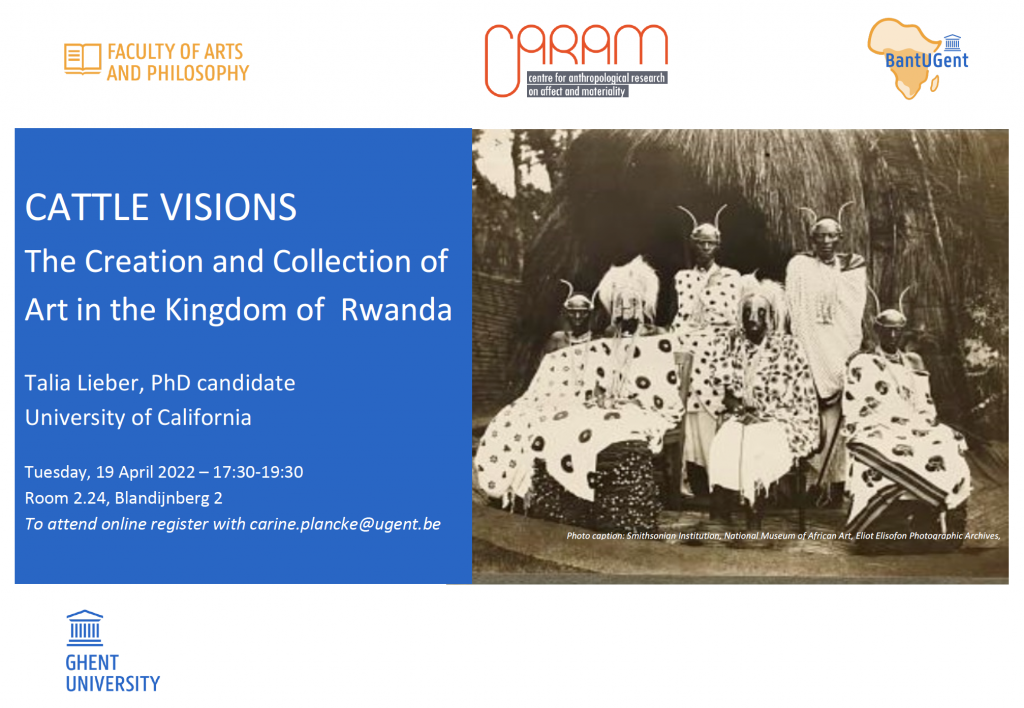This talk examines the art of the Rwandan kingdom in the Great Lakes Region of eastern Africa, investigating how environmental and political conditions in the late 19th and early 20th centuries, including encounters with European missionaries and colonial powers, shaped artistic creativity in Rwanda. Ultimately, the talk will consider the following questions: How was the image of the kingdom transformed by Rwandese artists? What can material objects reveal about Rwanda’s heritage and state formation? How and why did artwork impact Rwandan and European perceptions of the kingdom more broadly? The talk draws, in part, from images and objects held in the archives and collections of the Smithsonian Institution, including photographs and films taken by White Fathers missionaries in Rwanda. Through object-based examinations and archival research, this talk examines how Rwandese artists rendered images of power and prosperity through works depicting cattle and reflecting surrounding landscapes that shaped both Rwandan and European notions of the kingdom.
Talia Lieber is a PhD Candidate in the Department of Art History at the University of California, Los Angeles (UCLA), where she specializes in the arts of the African continent. Originally from Washington, D.C., Talia earned her M.A. degree in Art History from UCLA (2019) and her B.A. in International Relations and Art History from Tufts University (2013). Her dissertation research on the art of Rwanda has been generously supported by the Smithsonian Institution, the Fulbright Program, and UCLA. She has assisted with African art exhibitions at the National Museum of African Art, the Baltimore Museum of Art, and the Los Angeles County Museum of Art, and served as Co-Editor-In-Chief of Ufahamu: A Journal of African Studies.
